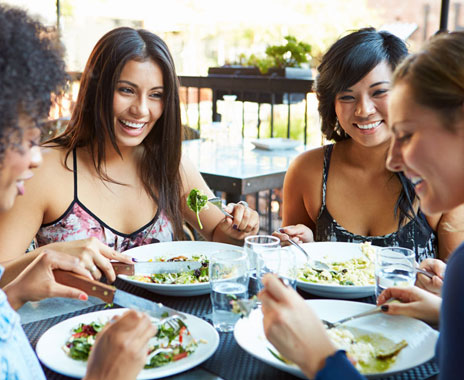Brand loyalty is alive, well, and living in the hearts of many millennials.
Two recent surveys—one by Facebook IQ, the research arm of Facebook, and the other by Buzz Marketing Group, a social media research and marketing specialist—indicate that millennials are hardly the brand snobs they’re made out to be.
Millennials, in fact, are just as likely as Baby Boomers to be brand loyalists, according to a survey of 14,700 adults in the U.S. by Facebook IQ.
“Loyalty is far from dead,” says Marinn Jackson, head of industry, restaurants, Facebook. “Millennials want to be loyal to your brand—but you need to give them a reason to do so.”
But in order to reach millennials, consumer brands must target more multicultural audiences in advertising and social campaigns, according to the Buzz Marketing Group online survey of 400 men and women ages 21 to 36.
“When it comes to loyalty, multicultural millennials give as much as they get,” says Buzz Marketing CEO and founder Tina Wells. “They know what they like, and aren’t shy about sharing that information with their friends and contacts.”
The most effective way to nudge millennials to remain brand loyal: via some sort of personalized and meaningful actions. That can be exceptional service. It can be great grub. It can be a super price. Or it can be a message or marketing platform that touches them personally. In almost every case, when it comes to millennials, it’s about a great brand experience.
“The study shows us that millennials shouldn’t be dismissed as unloyal,” Jackson says. “We’ve seen that they are actually as likely as Boomers to be brand loyalists.” But, she says, millennials are less loyal in so-called vertical markets, where price often plays a bigger factor, like airlines or hotels.
Just how does a restaurant get a customer—particularly a millennial customer—to be more brand loyal?
Appeal to the senses. Taste is the top reason given by brand loyalists, when asked why they are loyal to a restaurant brand, says Jackson.
Appeal to the emotions. Loyal customers also focus on service, which can be a big part of the customer experience.
Give them options. Millennials are twice as likely as boomers to cite a lack of healthy options as a barrier for restaurant loyalty, says Jackson.
Coddle kids. Some 42 percent of new parents describe themselves as loyal vs. 36 percent of non-parents. New parents suddenly worry about everything from stroller access to crayons at the table.
Think mobile. To get millennials in the door in the first place—and get them to return—a brand must have a savvy, mobile marketing strategy. A restaurant that serves breakfast, for example, should be thinking about serving up a mobile breakfast ad during that timeframe, says Jackson. “Your diners are spending more and more time starring down at their phones. So your opportunity sits in the palm of your diners’ hands,” she says.
Effective mobile strategy with millennials, in particular, she says, Is to provide extremely personal and useful information.”
The typical millennials spends about 50 minutes per day across Facebook, Instagram, and Messenger. The key, she says, is to tap into these platforms with exciting and engaging brand loyal experiences.
For example, earlier this year Domino’s introduced its first Messenger Bot—allowing pizza lovers to re-order via a Bot experience. Such personalized fun gives millennials a strong reason to remain brand loyal, says Jackson.
Millennials say they actually want to be loyal to brands. As a group, millennials are 1.75 times more likely than Boomers to say that they would “like” to be brand-loyal, the survey says.
“You customer needs to be at the center of everything you do," Jackson says.

